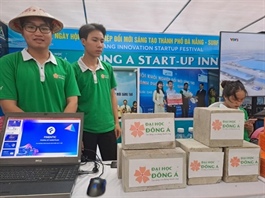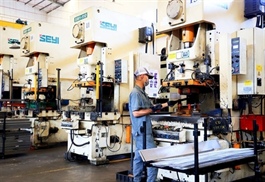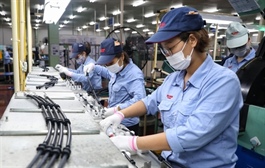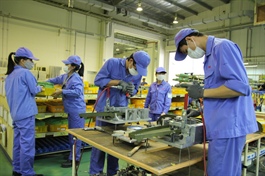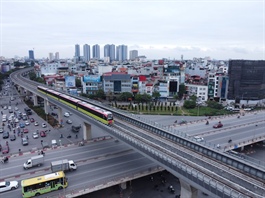Expansive US market proving pivotal for strong growth potential
Expansive US market proving pivotal for strong growth potential
Vietnam and the United States are fortifying their economic ties through mutual investments, reflecting a shared interest in each other’s robust growth potential.

Hanoi-based Rikkeisoft, the largest private technology company in Vietnam, is making its mark by revealing a $30 million investment plan in the US for the next three years.
“We’re initiating with a $2 million investment in 2023, aspiring to reach a cumulative $30 million by 2026. Our primary focus lies in mergers, acquisitions, infrastructure development, and talent augmentation,” said Tung Bui, senior executive vice president of Rikkeisoft and CEO of its US subsidiary, RKTech, during a forum in San Francisco.
Rikkeisoft chairman Tung Ta further emphasised the role of the US in its strategy. “Our ambition is to transform into a tech conglomerate valued at $1 billion. The expansive US market will be pivotal for Rikkeisoft’s anticipated 2028 initial public offering in the country,” he said.
Meanwhile, FPT chairman Truong Gia Binh has drawn attention to its ambitious $100 million investment plan in the US by year’s end, aiming to create over 3,000 jobs by 2028.
Reflecting on the recent US CHIPS Act, Binh said, “This legislation is a watershed moment. The next five years could see Vietnam becoming a significant hub for chip manufacturing.”
Yet Binh remained circumspect regarding FPT’s potential for a US listing, suggesting it as a possibility “only after we’ve scaled our operations based on market demands”.
Another significant partnership has surfaced between Vietnam’s MobiFone and US-based Juniper Networks. With this collaboration, Juniper is set to advise MobiFone on data centre construction and cloud computing services.
Meanwhile, VinFast has also garnered international attention with its Nasdaq listing and has set its sights on expanding its US footprint, from advanced facilities to a larger slice of the market.
While investment from Vietnam to the US is notably on the rise, the influx of US investment into Vietnam is substantially greater, attracting numerous high-profile names. The tech and energy sectors, in particular, are witnessing a surge in US investments in Vietnam.
Elon Musk’s SpaceX, for instance, is strengthening its ties in the country. Tim Hughes, senior vice president in charge of Global Business and Government Affairs, said, “SpaceX anticipates extending its footprint in Vietnam, aiming to introduce the Starlink satellite internet service. This move targets bridging the digital gap, ensuring broad bandwidth internet access in regions currently under-served.”
Meanwhile, Pacifico Energy, headquartered in the US but recognised as the largest solar energy investor in Japan, is also setting its sights on Vietnam.
Chairman Nate Franklin said, “Vietnam, alongside Japan and South Korea, constitutes the top three pivotal markets for Pacifico. We are eager to perpetuate our investments in Vietnam’s renewable energy sector, and are keenly exploring the prospects of offshore wind power development in the region.”
In parallel, Jensen Huang, founder and chairman of Nvidia, a powerhouse in semiconductors and AI, conveyed a bullish sentiment on Vietnam’s transformative landscape.
“We have a fervent interest in strengthening our relationship with Vietnam across the semiconductor, IT, and AI sectors. I genuinely believe Vietnam has the potential to emerge as a central manufacturing hub for Nvidia in Southeast Asia,” Huang said.
Strengthening its foothold in the region, Nvidia has entered into an agreement with Viettel, reflecting its ambition to be a key partner for Vietnam in bolstering domestic AI capabilities.
Several other major players, such as semiconductor leaders Marvell and Synopsys, as well as global titans like Coca-Cola and Facebook, have also articulated new ambitions for the Vietnamese market.
Nicolas Mangon, vice president of AutoCAD and AEC Industry Strategy at software group Autodesk, said the workforce shortage in professions such as architecture and engineering, especially in places like the US, is reshaping the global outsourcing landscape.
“Many companies are now pivoting to countries like Vietnam for digital outsourcing solutions. The country, with its rapid technological progression, is positioning itself as a central hub for building information modelling,” Mangon said.
“This shift underscores its technological advancement and reveals tremendous economic potential.”




